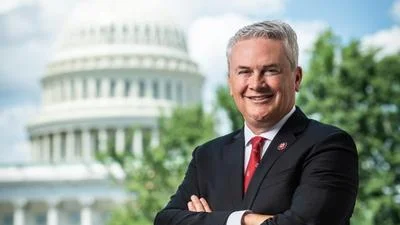E&C Chairman Raises Concerns with Four Companies Regarding Their Roles in the Rise of Youth Vaping Following Passage of Legislation Empowering FDA to Regulate Synthetic Nicotine
Following the recent enactment of federal legislation clarifying the authority of the Food and Drug Administration (FDA) to regulate all tobacco products, including those containing synthetic nicotine, Energy and Commerce Committee Chairman Frank Pallone, Jr. (D-NJ) wrote to four leading vaping companies that sell synthetic nicotine products to request information regarding the health and safety of their products. The Chairman also asked each of the companies about their plans to comply with federal regulation, details on their marketing practices, and their role in the promotion of vaping and nicotine use by kids and teens.
In the letters, Pallone notes the companies have appeared to target younger audiences when marketing their products. For example, an ad from Puff Bar marketed itself as the “…perfect escape from the…parental texts;” 7 Daze released a range of fruity flavors using synthetic nicotine salts; VaporSalon recently advertised an in-store pizza party for anyone, including people under 21; and a post on Daddy’s Vapor’s Instagram states, “musical education leads to better test scores” with hashtags solely related to vaping.
“Given the well-established health consequences of nicotine addiction, I am concerned by the proliferation of synthetic nicotine products like yours when so little is known about the specific consequences of their use. I also remain deeply troubled by the evident influence of your products on youth use of e-cigarettes,” Pallone wrote. “The rapid increase of adolescents using these products is alarming in its similarity to the early tactics of other tobacco companies that contributed to the emergence of the youth vaping epidemic.”
Pallone also raised concerns that prior to enactment of legislation clarifying FDA’s authority to regulate synthetic nicotine products, the four companies appeared to be attempting to circumvent agency regulation by selling so-called “tobacco-free” synthetic nicotine products rather than tobacco-derived nicotine. In the letters, Pallone noted that Puff Bar co-CEO Patrick Beltran claimed, “It's well known that this product [synthetic nicotine] is not under the FDA jurisdiction,” and VaporSalon posted on its company Facebook page that it switched to synthetic “tobacco-free” nicotine to be “outside of the FDA’s regulations.”
“As FDA continues its ongoing efforts to ensure that the products on the market have been authorized for the protection of public health, your company appears to have been intentionally skirting regulatory authority by using synthetic nicotine instead of tobacco-derived nicotine,” Pallone continued. “In light of the omnibus’s recent clarification of FDA’s regulatory authority over all tobacco products, including those containing synthetic nicotine and to address the concerns I have outlined above, please provide the following requested information, as well as a briefing by April 5, 2022.”
Since the beginning of the COVID-19 pandemic, there has been an alarming rise in the rate of youth using disposable e-cigarette products. According to the Centers for Disease Control and Prevention’s 2021 National Youth Tobacco Study (NYTS), more than two million high school and middle school students reported using e-cigarettes in the last 30 days, with more than half using disposable devices. Flavored e-cigarettes are the primary driver of the shift to disposable vaping products among adolescents. In 2020, approximately 85 percent of adolescents using e-cigarettes exclusively used flavored products, and those numbers remained virtually unchanged in 2021.
Pallone has long been a champion of protecting youth from the harms of tobacco usage. As Chairman, Pallone has led Committee efforts to address the youth vaping crisis, including: launching an inquiry in August 2019 on the impact of e-cigarettes on adolescents; holding a hearing in February 2020 on e-cigarette manufacturers’ impact on public health; and authoring legislation to address the youth tobacco epidemic, including language clarifying FDA’s authority over synthetic nicotine, which passed the House in February 2020.
Last week, President Biden signed H.R. 2471, the bipartisan and bicameral omnibus appropriations and Ukraine supplemental package, into law, which contained the provision championed by Pallone clarifying FDA’s authority to regulate synthetic nicotine products.:
As part of the inquiry, Chairman Pallone requested answers to a series of questions, including the following:
- Does your company intend to continue making its products available for sale and submit premarket tobacco applications (PMTAs) for the products that contain synthetic nicotine? If so, please specify for which products. If your company does not intend to submit PMTAs for all of its products that contain synthetic nicotine, please describe what steps the company will take to ensure these products are no longer available for sale 60 days after enactment of the omnibus.
- What federal regulatory authorities is your company complying with to ensure the safety of its products and restricting its use to adults over the age of 21?
- What research has your company conducted related to its products, including the health impacts of its products on adolescents, the appeal of its flavored products to adolescents, evidence that the products are necessary for smoking cessation among adults, and the effect of social media on adolescent users of your products?
- What is the breakdown of your company’s paid marketing for each year, including the use of sponsored content, social media influencers, or paid celebrity spokespeople?
- What age-verification strategies does your company use to prevent underage sales to minors in-store and online?
- Has your company ever run targeted online advertisements, and if so, which specific groups were targeted?
Original source can be found here.









